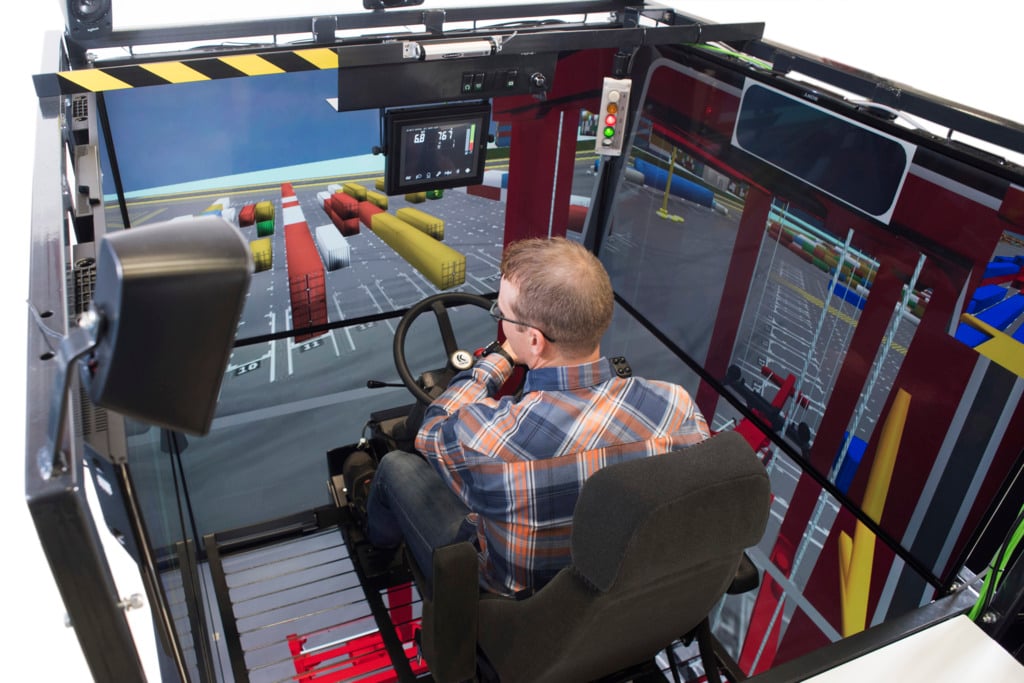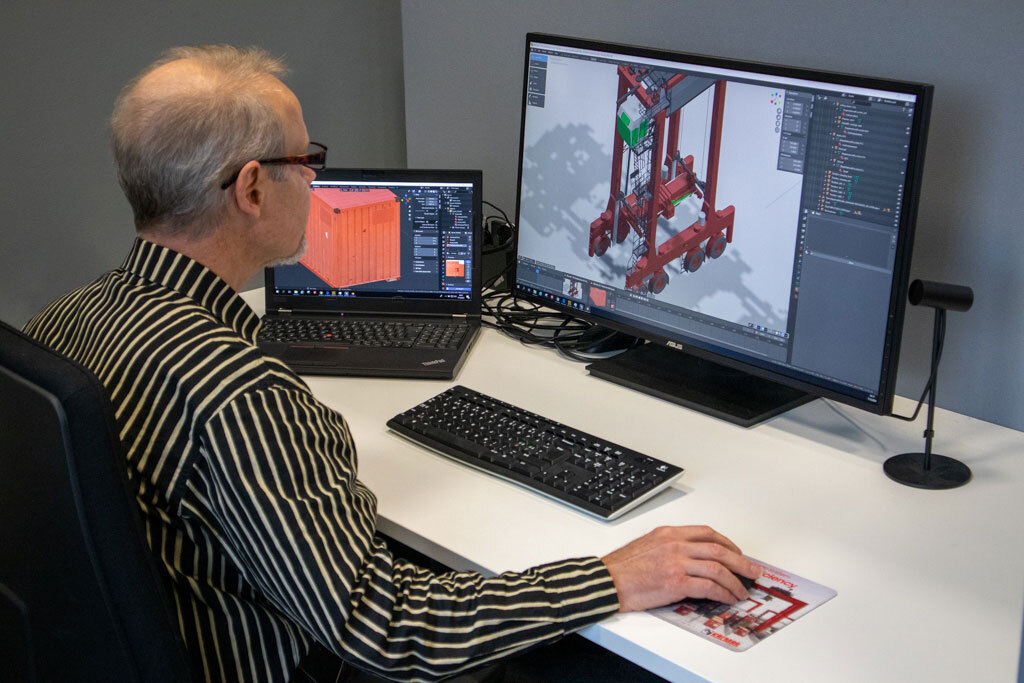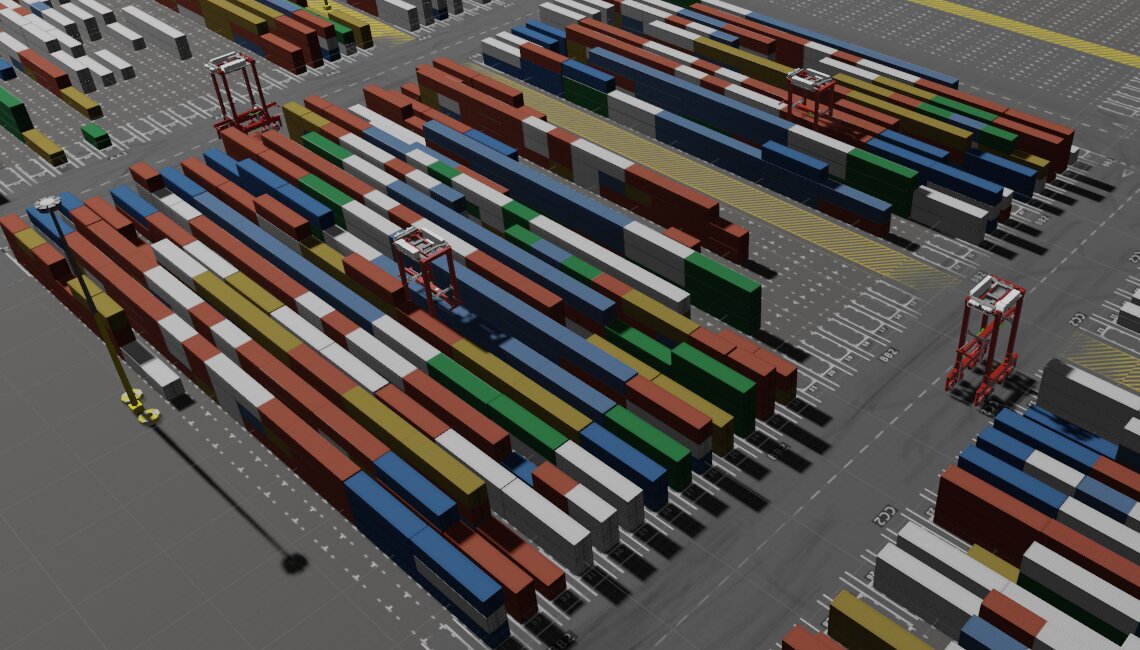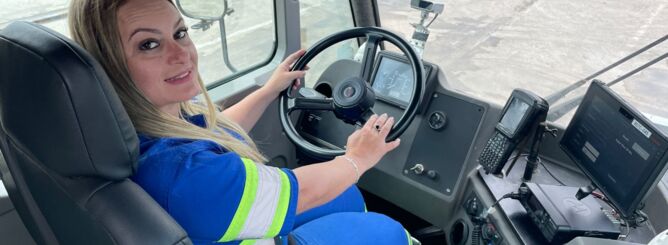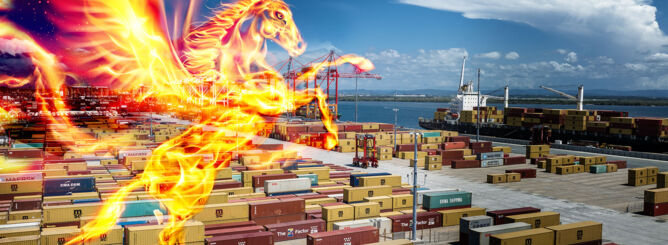Bringing design concepts to life in a virtual world
Kalmar’s Simulation and Virtual Environments team provides a vital link between drawing-board designs and finished products by bringing them to life inside a virtual world. Led by Hannu Santahuhta, the team develops simulations that are used for software development, training and design validation purposes as well as virtual reality (VR) applications for a variety of needs.
Simulation and VR technologies play a vital role in the crucial early design phase of terminal layouts, cargo-handling equipment and software solutions. Simulators offer the opportunity to put virtual cranes in the hands of software, mechanical and electrical engineers well before the real things are built and available for testing.
“We can provide everything from strength and stiffness simulations for crane structures to real-time hardware-in-the-loop (HIL) machine simulators, and even operation simulations of entire container terminals,” explains Hannu Santahuhta, Senior Manager, Simulation & Virtual Environments.
From drawing board to immersive virtual world
“The VR solutions we create are typically used for design reviews – either internally or together with customers. They’re especially useful in visibility studies when we’re developing remote-control solutions for example, as well as for other types of safety studies,” says Hannu. “A VR environment is a great way to verify and demonstrate how an automated remote-control solution will work because it’s so immersive – with properly modelled environments and machines we can see if there are any visibility issues to be solved for example,” Hannu explains.
The operation simulations that Hannu and his team create have immense value in terms of evaluating different terminal concepts and layouts. “Having these tools available is crucial because they help our Terminal Design Services experts to identify any possible issues and iron them out in the early phases, avoiding costly and time-consuming errors later on,” highlights Hannu.
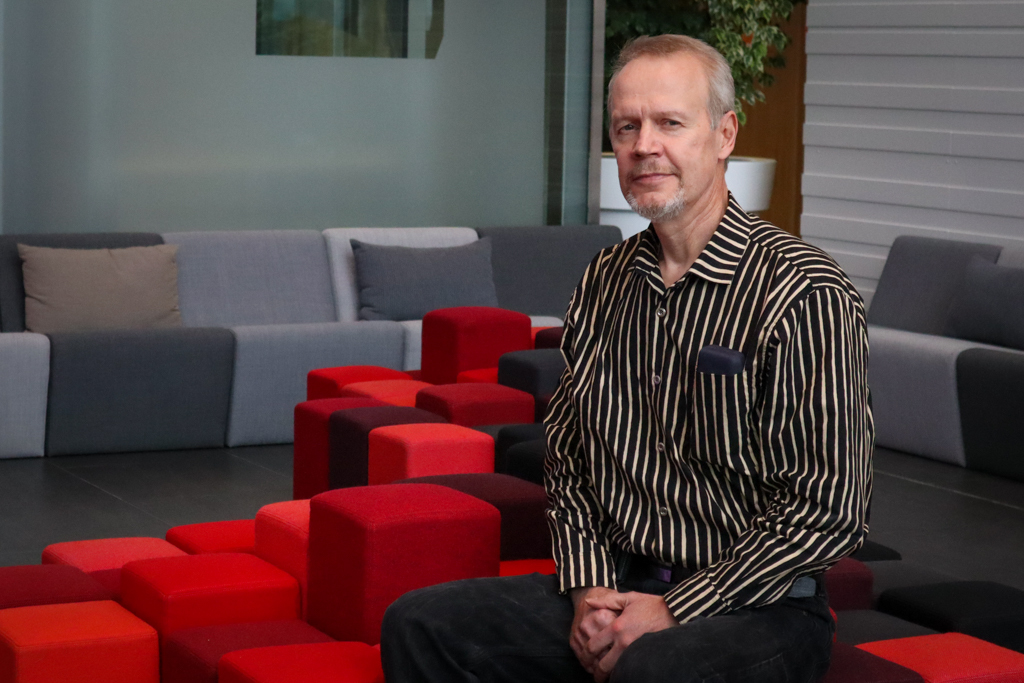
A new crane starts with computer bytes, not metal bits
“When Kalmar is designing a new crane solution or system, we are the first team to build it because we create a virtual system for our engineers to work with,” Hannu points out. “This means we work closely with the design engineers to replicate their design in the simulation model. The same goes for software too – new control system software is integrated into a virtual crane during its early development phase, so our simulation engineers sit side-by-side with software engineers to bring the system to life.”
Hannu’s background as a product development engineer has given him an appreciation of the challenges these teams face when tasked with bringing a new product to the market. “I know how important product development is and how difficult the process can be. I think the best thing about my work is that the tools my team produces help our development engineers to create the best possible solutions for our customers.”
Joining forces with the top minds from academia
Hannu’s team participates in research projects with a number of universities and polytechnics and also works directly with academics and research teams on specific design challenges. “For us, this kind of collaboration gives a chance to tap into the latest research results and a pool of rising talent, while the students gain from exposure to real industry challenges and ways of working,” Hannu explains.
One such project involves a VR application to demonstrate how Kalmar’s Automated Truck Handling solution works. The application, developed by Petri Kuha, a student at Tampere University of Applied Sciences, will be used for internal training and external marketing purposes.
